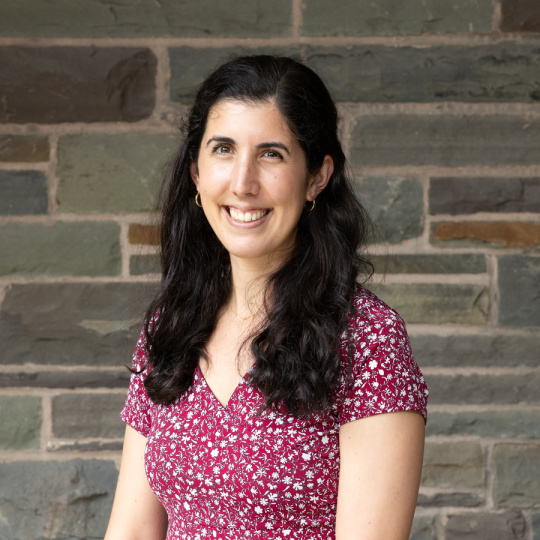Hannah Schacter, assistant professor of psychology in Wayne State University’s College of Liberal Arts and Sciences and adjunct assistant professor in the Merrill Palmer Skillman Institute for Child and Family Development, has been selected as the 2023 Early Career Award recipient by the Alberti Center for Bullying Abuse Prevention at the University at Buffalo. The annual award recognizes exemplary scholarly contributions to the field of bullying abuse and prevention and research that has the potential to influence practice and policy.
“There are so many physical, cognitive and social changes during adolescence that occur at the same time as a heightened awareness of peers and a desire to fit in,” Schacter said. “It’s a crucial development window. Some teens have dire outcomes after negative peer experiences, including depression, anxiety and even suicidal ideation, while others have less severe outcomes. I’ve always been drawn to better understanding why that is, and how we can help support adolescents.”

Schacter, who joined the Wayne State faculty in 2019, has dedicated her work to studying adolescent social-emotional development and health, with a specific focus on understanding the role that peer relationships play during this critical development phase. In her research, she seeks to focus on real-world environments that offer insights into adolescent life “as it’s lived” through methods like daily dairy logs and school-based surveys.
In addition to the Alberti Center for Bullying Abuse Prevention’s Early Career Award, Schacter has been recognized with the College of Liberal Arts and Sciences’ Teaching Award (2023) and the Wayne State University General Education Teaching Award (2022). Her work has been published in the Developmental Psychology, Child Development, Development and Psychopathology, Health Psychology, and Pediatrics, among other journals. A leading scholar in her field, she is also frequently sought by media to provide expertise, and has been cited by The New York Times, National Geographic, The Wall Street Journal, and CNN, among other national and local outlets.
Much of Schacter’s work has focused on a common negative peer experience: bullying, and most importantly, how to protect victims from maladjustment and suffering. One arm of her research focuses on identifying how contexts within a school influence an adolescent’s risk and distress, finding that, in general, victims experience heightened distress and are more likely to internalize blame for their abuse in schools where bullying is less common. More recently, she has examined how different schooling formats contribute to risk and distress, including the impact of online learning during the COVID-19 pandemic.
She has also examined the role of friendships and how the mental health of an adolescent’s peer group influences bullied youth. Her work has shown that although bullied adolescents encounter more challenges maintaining stable friendships over time, having supportive peers who can relate to their social challenges can be an important avenue for addressing victims’ needs. In a newer line of work, she considers the power dynamics of teen friendships, finding that adolescents who feel bossed around by their friends experience emotional distress.
Additionally, Schacter’s research has explored intrapersonal psychological and biological factors that influence vulnerability to bullying and associated health risks. Currently, she and Hilary Marusak, assistant professor of psychiatry and behavioral neurosciences in the Wayne State School of Medicine, are co-PIs on an NICHD R21 study to investigate bullying as a form of trauma and assess whether adolescents with a history of bullying may have heightened sensitivity to threats, which the scholars hypothesize might contribute to the development of anxiety over time. Schacter is also the recipient of an American Psychological Association Visionary grant to improve health outcomes of adolescents with asthma by exploring the role of peer support.
“Ultimately, my work seeks to understand the complex factors that influence the amount of harm bullying can cause, and why,” she said. “If we can identify those factors and causes, we can work to break the cycle and be more effective in designing school-wide interventions and supports that both reduce bullying and alleviate the distress of victims.”
